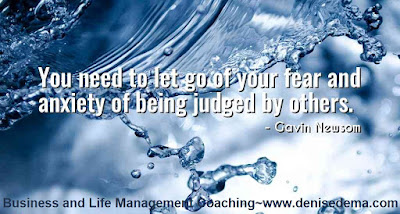Are you impacted by the feelings of those around you? Do people describe you as empathetic? Perhaps you have always had the ability to feel the emotions and physical symptoms of others as if they were your own. If this rings true in your life, you may be an “empath.”
Only a small percentage of the population experience this type of sensitivity, having the ability to feel and absorb the emotions surrounding them. They likely view the world through their emotions and intuition rather than putting too much logic behind their decision making. While this characteristic can be a source of personal strength, it is also important to know how to manage common challenges of being an empath.
What is an Empath?
While there is significant research behind the feeling of empathy, there are very few studies focused primarily on empaths. What is known is that empaths likely have hyper-responsive mirror neurons — the group of brain cells responsible for triggering feelings like compassion — according to research findings. This makes it possible for someone to feel especially sensitive to electromagnetic fields generated by a person’s brain and heart and intuit the emotions felt by those around them. If there is an excited crowd or a group of people in mourning, the energy can be felt deep within an empath’s body.
For those who are more introverted empaths, they may be more sensitive to the brain chemical responsible for feeling pleasure — dopamine. In instances where too much stimulation occurs, an empath can feel overwhelmed. Over time, empaths can become programmed to avoid external stimulation or need very little of it to feel happy. Whether or not a person is introverted, some common side effects of hyper-sensitivity can include exhaustion, overload, depression, and anxiety. Often, when these feelings arise, it’s helpful to have some space to retreat to at home or a favorite outdoor spot you can recharge in.
When overwhelmed with stressful emotions, empaths can experience anxiety, panic attacks, depression, and fatigue and may even show physical symptoms such as an increased heart rate and headache. This is because they internalize the feelings and pain of others without the ability to distinguish it from their own. To help manage these overwhelming moments, it is important for empaths to identify their own thoughts and feelings, as much as possible, and separating them from those of others.
Signs You Are an Empath
1. You are introverted. Often, empaths become overwhelmed when in large groups of people. Rather than feeling positively impacted by those around you, you likely choose to be more introverted and prefer one-to-one and small-group interactions.
2. You are easily impacted by images and movies. Perhaps tears come quickly and easily when you watch a movie, or you may experience the emotion behind the subject of a photograph. In these instances, moments on screen and in print have a big effect on how you feel.
3. You are afraid of getting lost in relationships. Empaths likely have a history of getting completely absorbed by new relationships and are fearful of not having the right kind of boundaries in place. You might feel completely swallowed up and blur the lines between your feelings and those of the person you are in a relationship with.
4. You absorb other people’s emotions. Being in tune with what other people are experiencing, both good and bad, is a sign you are an empath. You may feel ambient emotions around you as if they were your own and become exhausted emotionally and even physically.
5. You are highly intuitive. Are you led by your own gut feelings about people? Empaths often listen to their inner thoughts when it comes to judging people, helping to spot positive relationships that help them feel their best.
Using Your Emotions as a Strength. For the nearly 15 to 20 percent of the population who are classified as “highly sensitive,” they feel more deeply and intensely than those around them. Their brains are processing information and reflecting on it in a powerful, nuanced way. While this behavior can be seen as being too sensitive, caring, or too attentive, these abilities can also be perceived as desirable — being exceptionally perceptive, intuitive, and hyper-observant. The trick is to find a way to manage and channel those (sometimes) uncomfortable emotions.
To guard against unpleasant or overwhelming emotions, empaths can employee different types of strategies to make daily experiences more palatable. Taking a methodological approach to time management, and setting firm boundaries with people who drain your energy, becomes invaluable. Additionally, knowing when meditation and stillness is needed can be an important way to regroup. The key is to find ways to take care of yourself and strategically respond to heightened feelings as they arise.
While more research is needed when it comes to understanding the science behind empaths and the reason why some people absorb feelings more readily than others, there are still ways to identify whether or not you experience empath-like tendencies. By understanding the signs and triggers for empaths, it is easier to leverage these abilities as strengths, while better managing any negative impacts. In any instance, it is important to understand your emotional needs and communicate them to those around you. Source: Jessica DuBois-Maahs
















